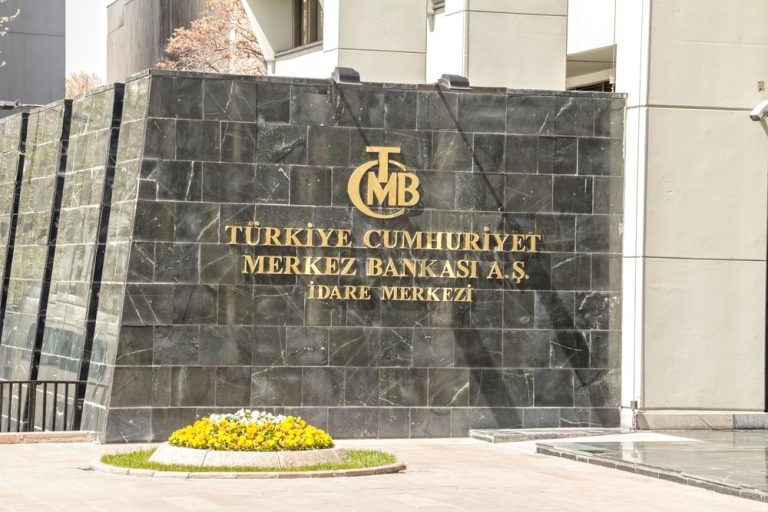The Turkish lira has strengthened slightly in the past few weeks as the country’s economy has improved, helped by the robust tourism sector. The GBP/TRY exchange rate has retreated from the year-to-date high of 45.97 to 44.70.
Similarly, the EUR/TRY pair has dropped from 38.57 to 37.30, while the USD/TRY rate has slipped slightly from 34.40 to 34.37.
Turkish economic growth
There are signs that the Turkish economy is doing well, helped by the robust tourism sector. Recent data shows that the country’s tourists rose by 15% in the second quarter, and the trend has continued. Tourist arrivals soared to a record high in July.
Tourists are taking advantage of Turkey’s historic and beautiful places and the weak local currency.
A weaker currency makes it easy for foreigners to spend in the country. The challenge, however, is that many businesses in Turkey charge their customers in foreign currencies like the US dollar and the euro.
The government hopes that the tourism sector will being in more money this year. Last year, the sector grew by 16.9%, bringing in over $54.3 billion, a substantial amount for a country with a GDP of almost $1 trillion.
However, while the services sector is booming, the key concern is the manufacturing industry. This sector should be doing well because of the weaker local currency. Data released earlier this month showed that the manufacturing PMI dropped to 44.30 in September from a peak of 50.3 earlier this year.
Meanwhile, there are signs that the inflation situation in the country is improving. Data by the statistics agency showed that the headline Consumer Price Index (CPI) dropped from 51.97% in September to 49.38% in October. It has been falling after peaking at 75% a few months ago.
Analysts expect that the trend will continue unless the central bank changes tune and starts cutting interest rates prematurely. The other risk is that service inflation may remain higher for longer.
Meanwhile, recent data showed that the country’s current account balance improved in August as the country recorded a $4.3 billion surplus. The closely watched 12-month rolling deficit has narrowed to about 0.9% of the GDP. It stood at $11.3 billion, the lowest reading in over two years.
CBRT interest rate decision
The next important catalyst for the USD/TRY, EUR/TRY, and GBP/TRY will be the Central Bank of the Republic of Turkey (CBRT) interest rate decision on Thursday.
Analysts, based on the previous guidance, expect the bank to maintain interest rates at 50%, where they have been in the past few months.
The bank will likely hint that rates will remain at an elevated level for a while until inflation shows that it is falling.
Analysts expect that the CBRT may decide to cut rates at the December meeting or in early next year. The ideal situation is where the bank holds rates steady for longer, a move that will make the lira more attractive than it is today.
The current scenario favors the lira than other currencies like the euro and sterling because investing in Turkish assets gives a positive return.
EUR/TRY analysis
The euro to TRY exchange rate will also react to the upcoming European Central Bank decision. Analysts expect that the bank will continue cutting interest rates to stimulate the economy.
That cut will lead to an improved carry trade opportunity. A carry trade happens when investors borrow a low-interest-rate currency to invest in a higher-yielding one.
On the daily chart, the EUR/TRY pair has formed a double–top chart pattern at 38.35. It has also moved below the neckline at 37.30, its lowest point on September 11. The EUR/TRY has crossed the 50-day moving average.
The pair has moved slightly below the 50-day moving average, while the MACD has pointed downwards. Therefore, the pair may continue falling as sellers target the key support at 36.
The GBP/TRY pair will replicate the euro’s performance, meaning that it could drop to the support at 44.
USD/TRY technical analysis
The USD/TRY exchange rate peaked at 34.30, where it has struggled to move below in the past few months. It has remained above the 50-day moving average.
Most importantly, the MACD and the Relative Strength Index have formed a bearish divergence chart pattern.
Therefore, a combination of a strong top at 34.30 and the divergence patterns means that the USD/TRY pair may have a big bearish breakout. If this happens, the pair will likely drop and retest the crucial support level at 34. This view will be confirmed if the pair drops below the 50-day moving average at 33.87. It will become invalid if it crosses the key resistance level at 34.30.
The post USD, EUR, GBP, TRY: Turkish lira comeback can’t be ruled out? appeared first on Invezz

